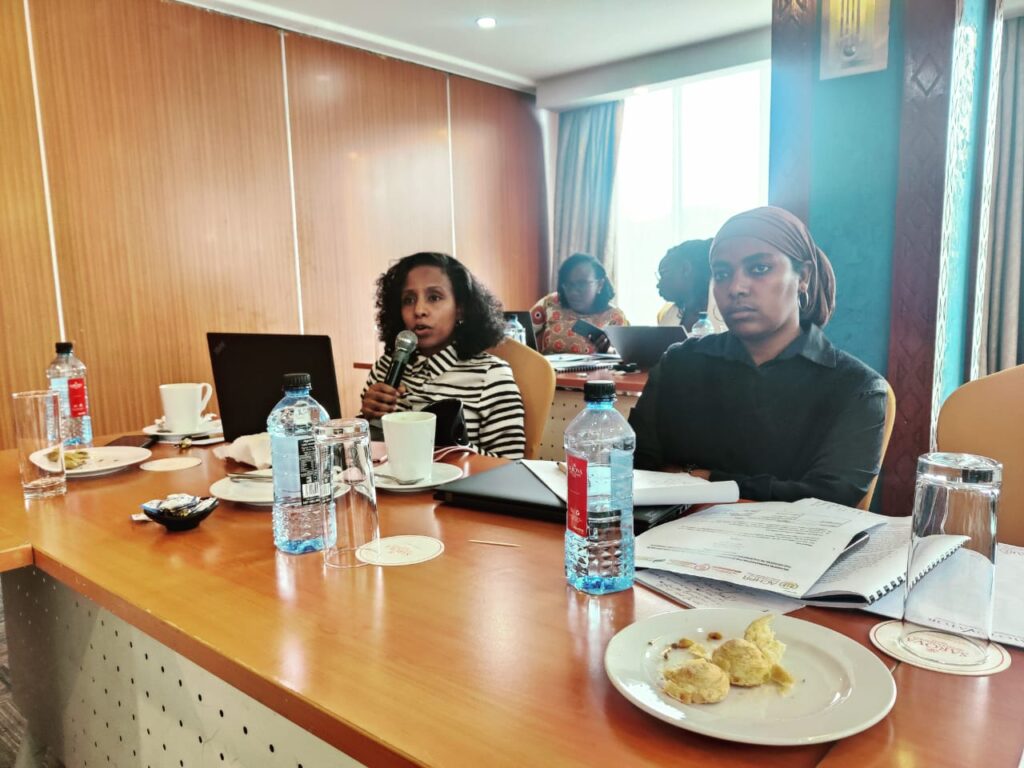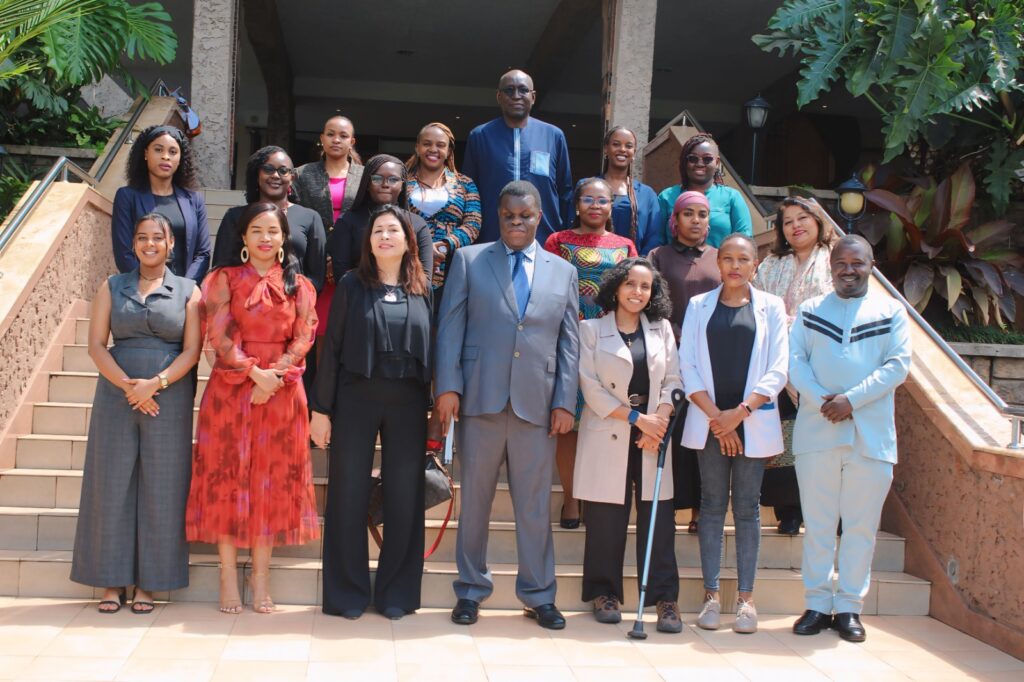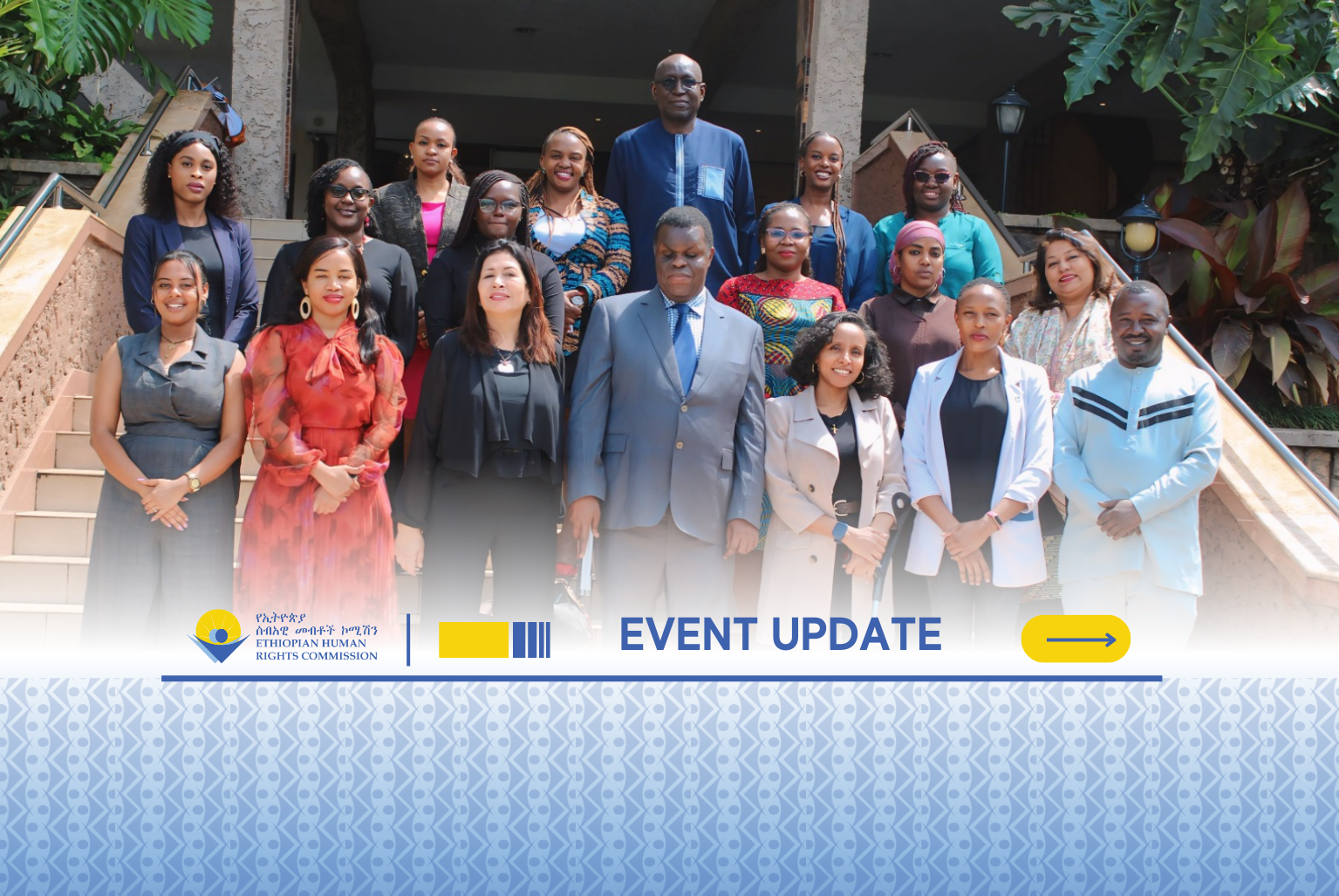The Ethiopian Human Rights Commission (EHRC) represented by Rigbe Gebrehawaria, Commissioner for Women, Children, Older Persons and Disability Rights, took part in a two-day technical workshop held in Nairobi, Kenya from November 20-21, 2024. The event, organized by the Special Rapporteur on the Rights of Women in Africa, in collaboration with Equality Now and the Solidarity for African Women’s Rights Coalition (SOAWR) focused on the withdrawal of reservations made by State Parties on the Protocol to African Charter on Human and Peoples’ Rights on the rights of Women in Africa (Maputo Protocol).

The workshop brought together representatives of states with reservations to the Maputo Protocol, including Ethiopia, South Africa, Uganda, Gambia, Kenya and Mauritius. Additionally, representatives from SOAWR, ACHPR, the African Union and independent experts from Senegal and Rwanda have attended the workshop. The workshop aimed to discuss and provide guidance on the content to be included in the framework for the withdrawal of reservations by state parties to the Maputo Protocol and the good practices and other considerations to keep in mind during the framework’s preparation. The objective of the framework is to inform advocacy and state processes of withdrawing reservations in accordance with Article 22 of the Vienna Convention on the Law of Treaties (1969) and encourage states with reservations to initiate or accelerate national processes towards withdrawing their reservations to the Maputo Protocol.
The discussion focused on several key topics related to the Maputo Protocol. These included the scope and character of reservations made by countries and thematic and country specific meanings, implications and impacts of reservations /declarations to the Protocol. It also explored the need for countries to reconsider and possibly withdraw their reservations, as well as the roles played by various organizations and groups. These include the African Commission on Human and Peoples’ Rights (ACHPR), the Special Rapporteur on the Rights of Women in Africa, the African Court on Human and Peoples’ Rights, international human rights bodies, and civil society organizations, in encouraging and supporting the withdrawal of these reservations.
Ethiopia has made reservations and interpretative declarations to the Maputo Protocol, including reservations on marriage-related matters, judicial separation of marriage, widow’s right to inheritance, reduction of military expenditure in favor of women’s rights, and the jurisdiction of the African Court.

The workshop pointed out that to initiate or accelerate Ethiopia’s withdrawal of its reservations to the Maputo Protocol, awareness creation initiatives on the reservations and their implications for relevant stakeholders, including legislative organ and civil societies, are considered an important initial step for Ethiopia’s universal ratification of the Protocol. Moreover, country-specific contexts should also be taken into consideration in all processes towards withdrawing its reservations.
Commissioner Rigbe Gebrehawaria highlighted that EHRC will continue its efforts in contributing to the development of the framework and exploring strategies to encourage the Ethiopian government to lift its reservations.
